SUMMARY
This is AI generated summarization, which may have errors. For context, always refer to the full article.
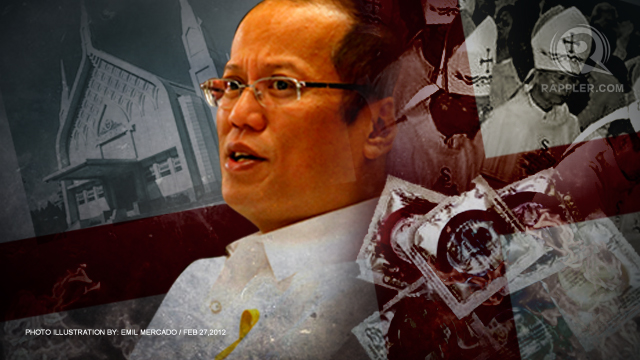
MANILA, Philippines – “Where are the Church leaders?”
A Cabinet official raised this question when asked about the apparent absence of support from the religious groups in Malacañang’s efforts to oust Chief Justice Renato Corona.
While the government and its supporters consider this as a campaign for good governance and transparency, Church leaders – supposedly advocates of these values – are surprisingly lukewarm toward, if not critical of, the ongoing impeachment trial of the Chief Justice, the same official noted.
The influential Iglesia Ni Cristo (INC), for example, has aligned itself with Corona, giving its go-signal to its members to join rallies supporting him.
On Tuesday, February 28, the INC will be staging a “grand evangelical mission and Bible exposition” which political observers and INC insiders said is meant to be a “show of force” for the religious sect.
In that rally, INC leaders plan to send a strong message to President Aquino: that he should be more focused on addressing national problems instead of ousting Corona.
Local officials, such as Cavite Gov. Ireneo Malicsi and Caloocan Mayor Enrico Echiverri, will be sending their own delegation to the rally.
Malicsi is a member of the ruling Liberal Party while Echiverri is facing suspension raps for alleged misuse of local government funds. The INC supported the two in the 2010 elections.
To a president who won a decisive victory in 2010, it is the height of irony for leaders of both the Catholic Church and the INC to have distanced themselves from him this early.
The 2 groups, after all, never shared the same political goals in the past.
Yet today they have found a common pet peeve in him.
Rivals in faith
The Catholic Church threw its support behind the impeachment trial of former President Estrada in late 2000 to January 2001.
In contrast, the INC stuck it out with Estrada, whose 1998 presidential bid the group had supported.
The INC’s most memorable political rally was the so-called Edsa 3, on April 30, 2001, when it sent hundreds of thousands of its members to the Edsa shrine to join urban poor communities in an overnight protest against Estrada’s arrest.
They stormed Malacañang the following day, May 1, 2001, prompting the police to disperse them, injuring dozens in the process.
Incidentally, 3 of the pro-Estrada senators who then supported the INC-backed protests now sit as senator-judges in the Corona trial: Senate President Juan Ponce Enrile, and senator-judges Miriam Defensor-Santiago and Vicente Sotto III.
A decade after “Edsa 3,” the INC decided to play fickle politics.
After initially endorsing the candidacy of Estrada in the 2010 presidential race, INC leaders changed their minds at the last minute and supported Aquino instead. “The INC was for Estrada but swung its support to Aquino,” said one politician-INC member.
So why would they now be spearheading protests against him?
Marcos and Aquino
The INC has historically distanced itself from the Aquinos, beginning from the Marcos regime.
It backed the candidacy of Marcos crony Eduardo “Danding” Cojuangco Jr in the 1992 presidential race, which was won by Fidel V. Ramos, Cory Aquino’s anointed bet.
The frosty ties ended in 2007 when Cory Aquino appealed to INC leaders to support the senatorial candidacy of her son, which they did. Aquino won.
And in the 2010 presidential election, Aquino garnered 15.2 million votes, or 40% of the total votes cast. INC would like to believe that it contributed 3 million of those votes, its estimated voting strength.
The INC expected Mr Aquino to return the favor.
But this president apparently treats Church leaders differently.
He is careful not to follow in the footsteps of his predecessor, former president Gloria Macagapal-Arroyo, who used her power to curry favors with Church leaders.
Proof of the importance Mrs Arroyo put in her relations with the Church is her decision to create an office that catered to Church issues. She named Conrado Limcaoco as Presidential Adviser on Ecclesiastical affairs; among his functions was to liaise with the different religious leaders.
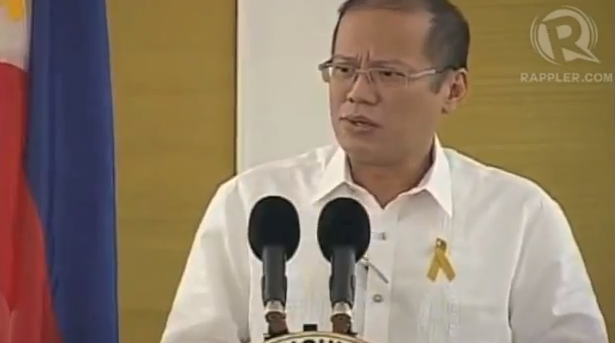
President Aquino, on the other hand, neither spends his energy nor resources on these concerns.
Yet, the INC has been known to secure favors in exchange for its political support.
A former Cabinet official of Estrada related that shortly after the latter assumed office in 1998, the INC sent a list of names for appointment in government posts.
The INC has a special preference for positions in the judiciary and law enforcement agencies.
In the Estrada Cabinet, two INC members became secretaries of the Department of Justice in succession: Artemio Toquero and Serafin Cuevas, who is now Corona’s lead counsel in the ongoing impeachment trial.
During Arroyo’s time, the INC endorsed the appointment of justices in the Court of Appeals and the Supreme Court. Among the justices that the group lobbied for were incumbent SC Associate Justice Presbitero Velasco and retired SC justice Ruben T. Reyes, who, like Velasco, also came from the Court of Appeals before being promoted to the SC.
Mrs Arroyo also appointed Reynaldo Wycoco, a retired general and INC member, as NBI chief. Wycoco died in 2005.
In 2006, then police general Matanggol Gatdula was chosen by then Quezon City Mayor and now Speaker Feliciano Belmonte Jr – from a short list – as chief of police of Quezon City, upon the strong lobby of the INC.
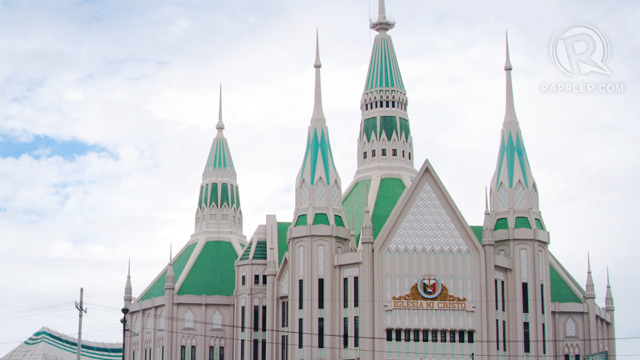
‘Iglesia ni Corona’
Shortly after Aquino won, the INC sent its “appointments list” to his camp, hoping that the newly elected President would return the favor.
Two sources – a Cabinet official and a former House member who has close ties with the INC – told us that when the President saw the list, a rather long one, he got exasperated.
“To be fair to the INC head, it appears most of those in the list were provided by the second and third tier in the INC hierarchy,” the Cabinet official said.
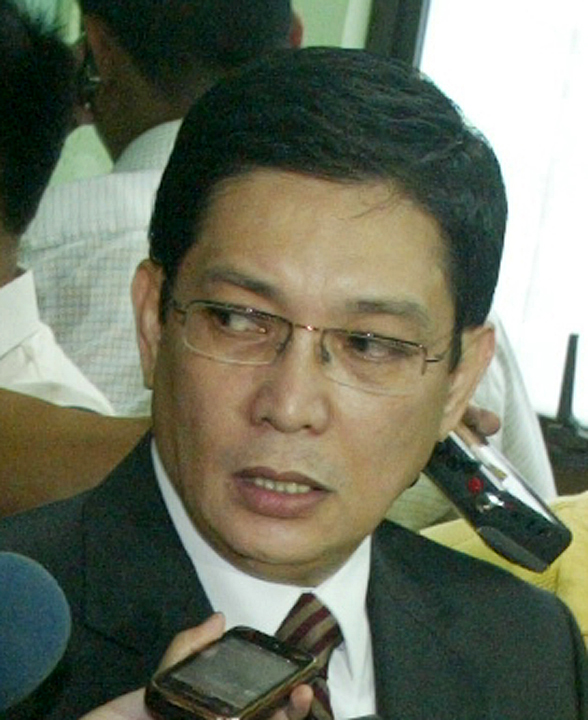 |
| Magtanggol Gatdula |
Aquino appointed some of them, including Gatdula as NBI chief. Gatdula himself admitted in a TV interview that he got the backing of the INC.
But the INC was not satisfied.
A few months after Aquino assumed office in June 2010, one published report said the INC was getting unhappy with the President after he refrained from appointing those recommended by the INC.
And some statements attributed to the President apparently reached the religious hierarchy.
The former House member we interviewed said that the INC was told about the President supposedly telling colleagues that he did not owe the group any debt of gratitude. Word also reached them about Mr Aquino’s supposed statement to colleagues – calling the INC “Iglesia ni Corona.”
What broke the camel’s back, though, and which was confirmed by a Cabinet official, was when the President fired Gatdula due to reports linking him to the kidnapping of a Japanese national.
The former House member said that as far as he knows, the INC had wanted the Palace to give Gatdula a graceful exit by allowing him to resign instead.
The Cabinet official we interviewed, however, said that when Gatdula learned that the Department of Justice would be filing charges against him in connection with the kidnap-for-ransom case of Noriyo Ohara, he sought the advice of Eduardo Manalo, INC head. “Manalo told Gatdula to face the charges squarely,” the official said.
But things turned for the worse when a Palace emissary sent word to the INC chief that the charges versus Gatdula would not be pursued if Cuevas would withdraw as Corona’s counsel. The INC chief resented this “as a form of blackmail.”
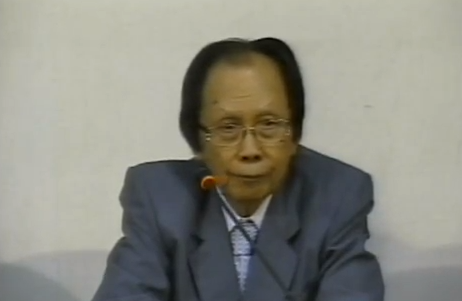
Cuevas spilled the beans in an interview he granted the Inquirer, where he essentially confirmed that the Palace was pressuring him to abandon Corona in exchange for the dropping of charges against Gatdula. Realizing the implications of his statement later, Cuevas issued a strong denial, but the Inquirer stood by its story, even releasing a transcript of the interview.
Rappler interviewed INC members over the weekend, and it appears that the Gatdula case has indeed caused them to resent the President.
(We sought to interview longtime INC spokesman Bienvenido Santiago but he declined our request.)
No official lines
With the Catholic Church, Mr Aquino strained his ties during the 2010 presidential campaign on account of one issue: birth control.
He caught the ire of some influential archbishops and bishops for leaning toward a state-supported family planning and population control program.
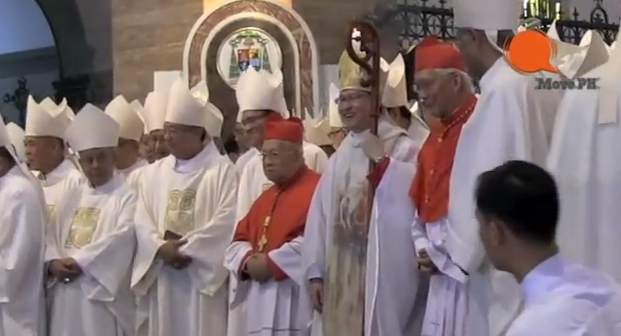
Thus at least 6 bishops chose to break their self-imposed rule of nonpartisanship and openly endorsed Kapatiran party presidential candidate JC delos Reyes. Delos Reyes’s platform closely hewed to the teachings of the Catholic Church, particular on family planning.
This hardly mattered, since the so-called Catholic vote does not exist or at least has not yet been proven.
When Aquino became president in 2010, he “was determined not to follow in the footsteps of Arroyo,” Liberal Party stalwart and Budget Secretary Florencio Abad said in an earlier interview.
This includes cutting off official lines with the religious leaders. Nobody occupies the position of presidential adviser on ecclesiastical affairs anymore.
“He has a different style from Arroyo. He wants to avoid the mistakes of the former President,” Abad said. He pointed out that Aquino’s predecessor politicized relations with the Churches.
Aquino’s decision meant that the Palace will only open communication lines with Church leaders as the need arises.
In Arroyo’s time, she did not only have Limcaoco, she also named Fatima Valdes as undersecretary for religious affairs.
It was Valdes who reportedly distributed envelopes containing money to select bishops during the Catholic Bishops’ Conference of the Philippines plenary in 2006. The media expose that followed embarassed the collegial body of bishops.
The Arroyo administration coursed its huge support for Church projects through Valdes, causing the Catholic leadership to stay quiet when Mrs Arroyo faced controversies.
In explaining President Aquino’s relations with Church leaders, Angelito Banayo, a longtime political strategist and now head of the National Food Authority, observed that Aquino “is basically not a politician.”
This has its pros and cons.
One advantage is that it restores the separation between the Church and the State, or at least a semblance of it. It insulates the Church from poltiical transactions and reduces perception that Church leaders are a constant part of decision-making.
The negative consequence of this, however, is that this could easily lead to misunderstanding between parties and, on the part of a powerful state, belligerence.
This is what happened in the debates on the contentious Reproductive Health Bill.
Twice, the negotiating panel of the Catholic Bishops’ Conference of the Philippines walked out of talks with government due to alleged bargaining in bad faith by the President.
Back channels
Aquino created a government panel to hold dialogues with the Church on the bill. But he himself caused the negotiations’ breakdown.
The second CBCP panel walkout last year was triggered by an Aquino speech at a graduation ceremony about his all-out support for the RH Bill. This was made at a time when the Church was still hoping to talk him out of it.
What aggravates the situation is that the President is surrounded by advisers “who have limited political experience,” lamented a government official who spoke on condition of anonymity. “There are nuances in dealing with Church leaders and maybe the President’s men failed to articulate his side or explanation,” the same official added.
In the case of Arroyo, she was ably assisted by her experienced political adviser Gabriel Claudio, who also served during the time of former President Ramos.
Back channels, for one, are useful in pushing for policies or presidential advocacies, the same official explained.
Thus it has come to this, that the INC is now raring to flex its political muscle anew. The religious sect intends to tell Aquino on Tuesday, February 28, that “you can’t ignore us,” said the same official.
The Tuesday rally could also be the INC’s political message to 6 senator-judges who may run for reelection in 2013.
Will the INC anoinment allow Corona to keep his crown?
Or will the President exert all efforts to show who’s the political boss? – Rappler.com
Add a comment
How does this make you feel?


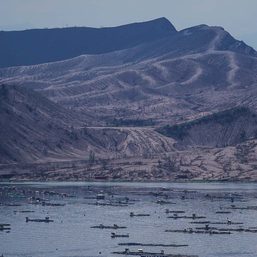


There are no comments yet. Add your comment to start the conversation.